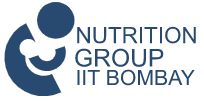Authors: Priyanka Athavale, Kristin Hoeft, Rupal M. Dalal, Ameya P. Bondre, Piyasree Mukherjee & Karen Sokal-Gutierrez
Abstract
Background
Childhood malnutrition has been a longstanding crisis in Mumbai, India. Despite national IYCF (Infant Young Child Feeding) guidelines to promote best practices for infant/toddler feeding, nearly one-third of children under age five are stunted or underweight. To improve child nutrition, interventions should address the cultural, social, and environmental influences on infant feeding practices. This study is an in-depth qualitative assessment of family barriers and facilitators to implementing recommended nutrition practices in two Mumbai slum communities, within the context of an existing nutrition education-based intervention by a local non-governmental non-profit organization.
Methods
The population was purposively sampled to represent a variety of household demographics. Data were collected through 33 in-depth semi-structured interviews with caregivers (mothers and paternal grandmothers) of children age 0–2 years. Transcripts were translated and transcribed, and analyzed using qualitative analysis procedures and software.
Results
A complex set of barriers and facilitators influence mothers’/caregivers’ infant-toddler feeding practices. Most infants were fed complementary foods and non-nutritious processed snacks, counter to IYCF recommendations. Key barriers included: lack of nutrition knowledge and experience, receiving conflicting messages from different sources, limited social support, and poor self-efficacy for maternal decision-making. Key facilitators included: professional nutrition guidance, personal self-efficacy and empowerment, and family support. Interventions to improve child nutrition should address mothers’/caregivers’ key barriers and facilitators to recommended infant-toddler feeding practices.
Conclusions
Nutrition interventions should prioritize standard messaging across healthcare providers, engage all family members, target prevention of early introduction of sugary and non-nutritious processed foods, and strengthen maternal self-efficacy for following IYCF recommended guidelines
Find the article at: https://jhpn.biomedcentral.com/articles/10.1186/s41043-020-00215-w
Citation: Athavale, P., Hoeft, K., Dalal, R. M., Bondre, A. P., Mukherjee, P., & Sokal-Gutierrez, K. (2020, July 27). A qualitative assessment of barriers and facilitators to implementing recommended infant nutrition practices in Mumbai, India. Journal of Health, Population and Nutrition, 39(1). https://doi.org/10.1186/s41043-020-00215-w
